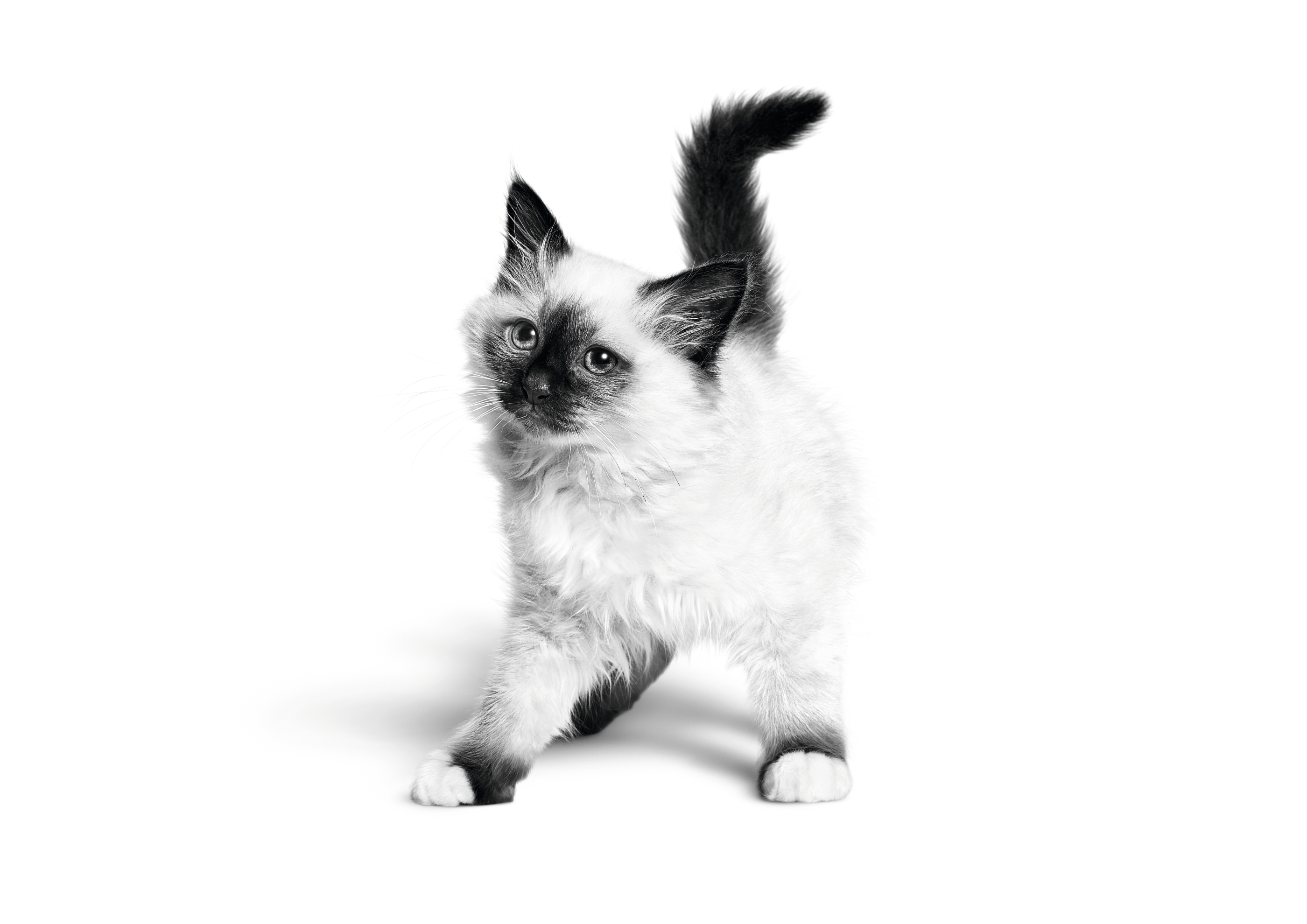
Help protect your cat's teeth from gingivitis and dental disease
Brushing your cat's teeth can be a daunting task, but getting your cat used to this process when they're a kitten will make it more comfortable for everyone. Dental disease is one of the most common problems pets suffer from, so it makes sense to be proactive to support your cat's dental health.
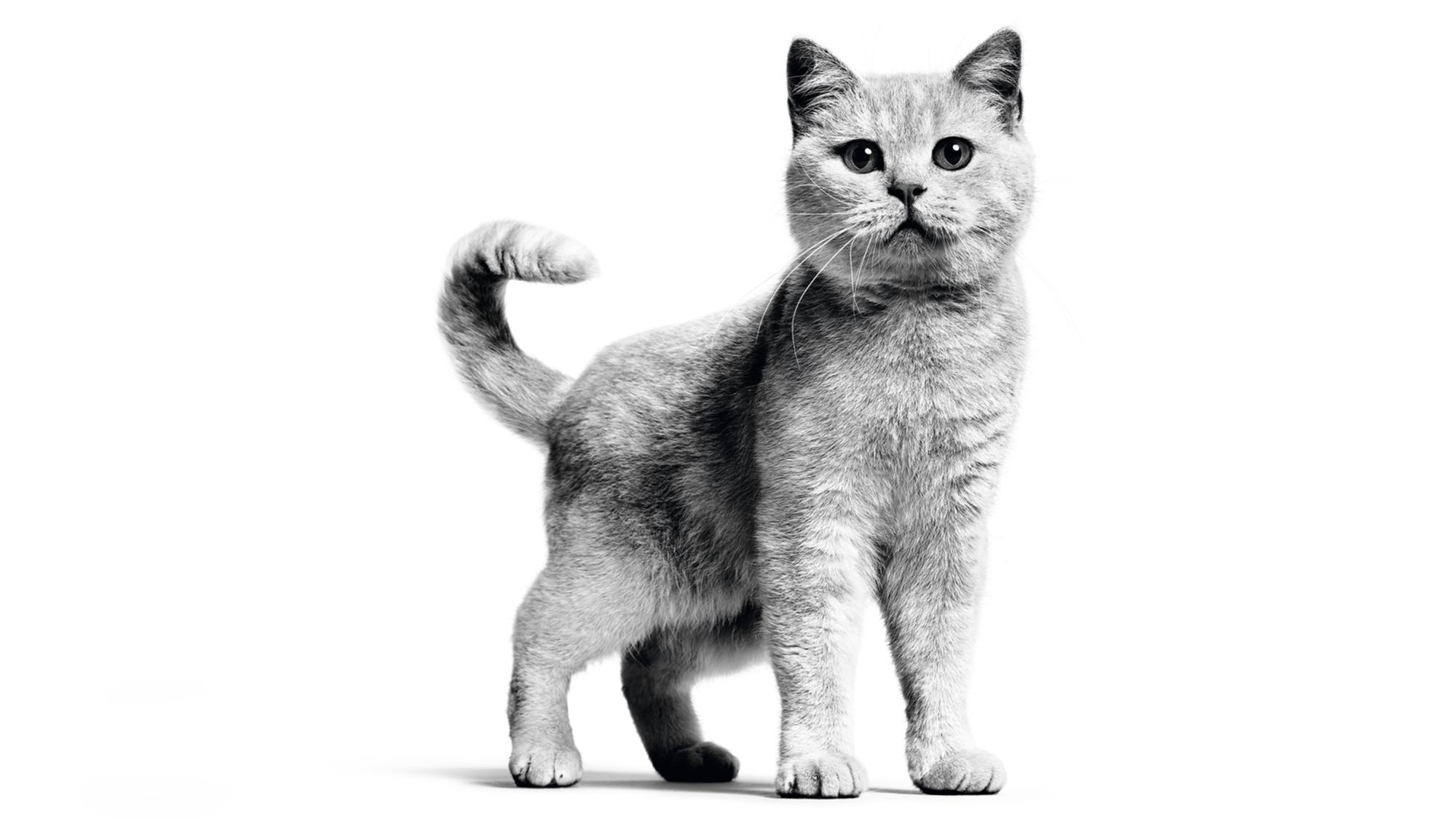
Susceptibility to dental disease and gingivitis in cats
Did you know almost 90% of pet owners believe that root exposure is painful for people, however, only 65% recognized that the same condition causes pain in cats and dogs?1
The Early Stages of Dental Disease and Gingivitis
Stage 1 - Gingivitis
Common signs include; bad breath becoming noticeable, tartar beginning to build up, and some reddening of the gums.
Stage 0 - Clinically Normal
Your cat has healthy-looking teeth.
Stage 3 - Moderate Periodontitis
Common signs include; very bad breath, a large build-up of tartar, very discoloured teeth, very red gums and your cat may favour chewing on one side.
Stage 2 - Early Periodontitis
Common signs include; bad breath, more teeth becoming discoloured, additional tartar on teeth and the majority of gums are now red.
Stage 4 - Advanced Periodontitis
Common signs include; severe bad breath, your cat may be showing signs of pain and your cat may drop kibbles when they chew.
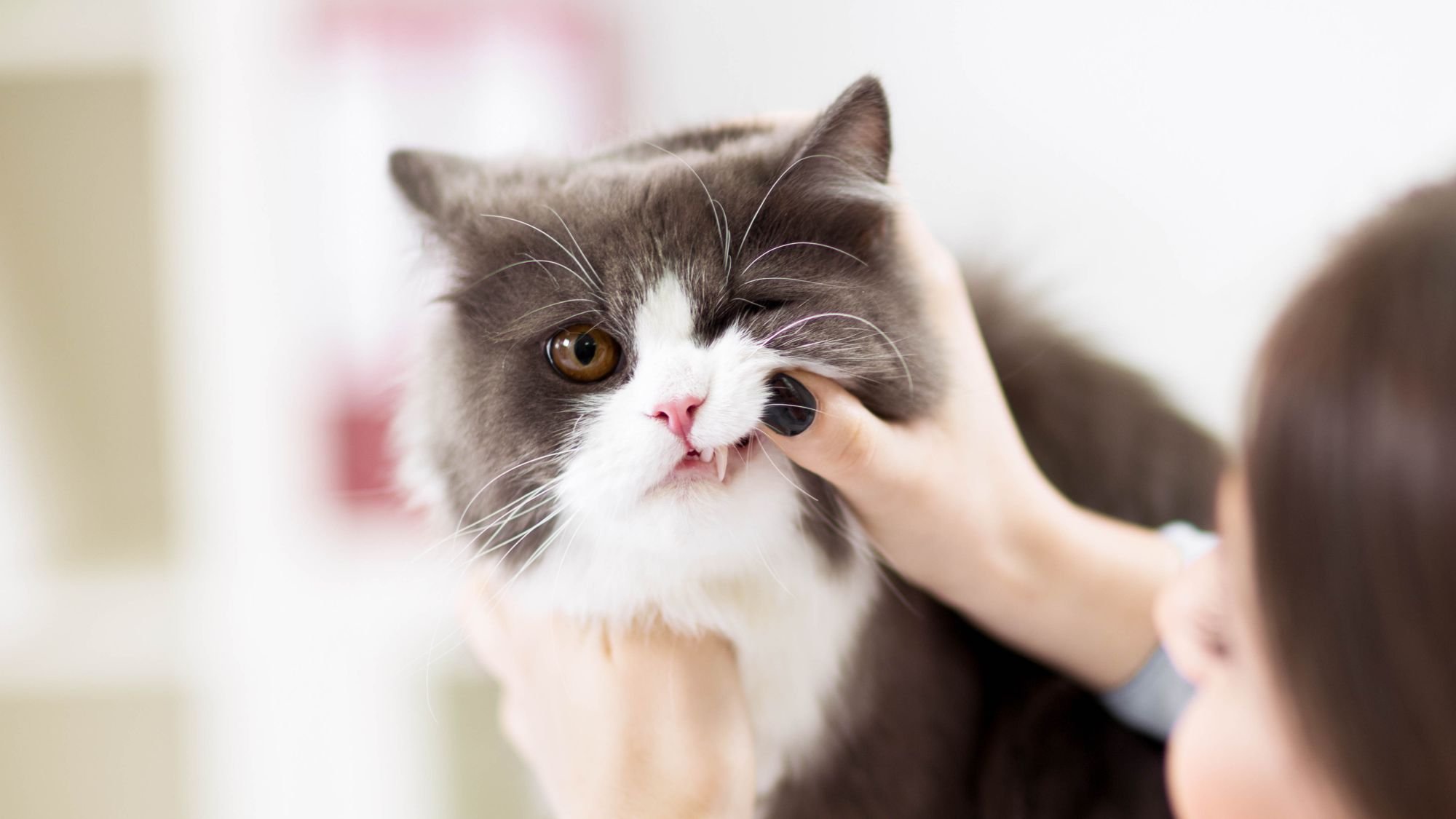
Learn More About the Signs of Dental Disease
Read our article to learn about the five stages of dental disease and the signs in more detail.
Did you know your veterinarian is also your cat's dentist?
Cats should have their teeth checked by a professional regularly. The next time your cat is at a routine veterinary check-up, ask them to make sure your cat's teeth are clean and healthy. If your cat's teeth are showing signs of dental disease they'll recommend the best course of action to support them.
Find a veterinarianBrush up on your Cat's Dental Health
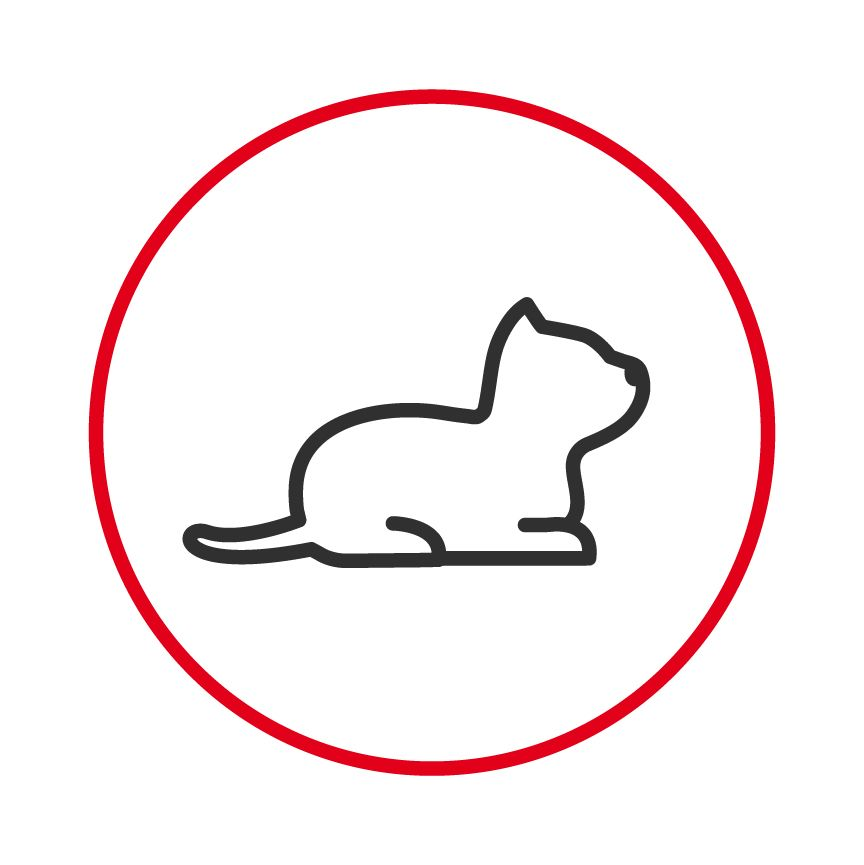
When
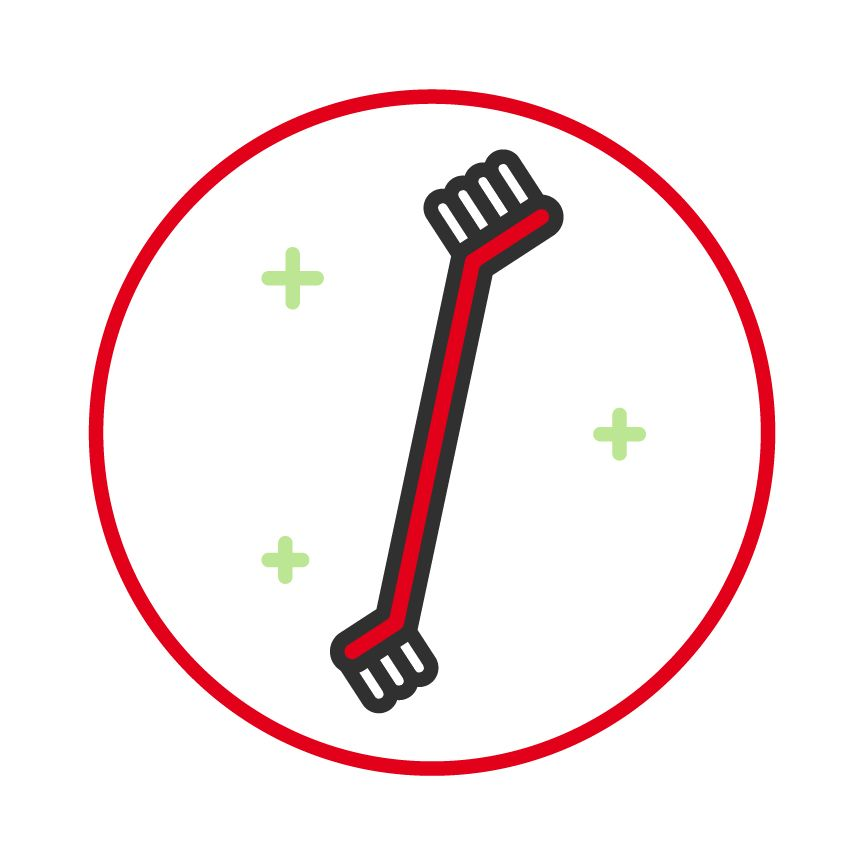
How

Frequency
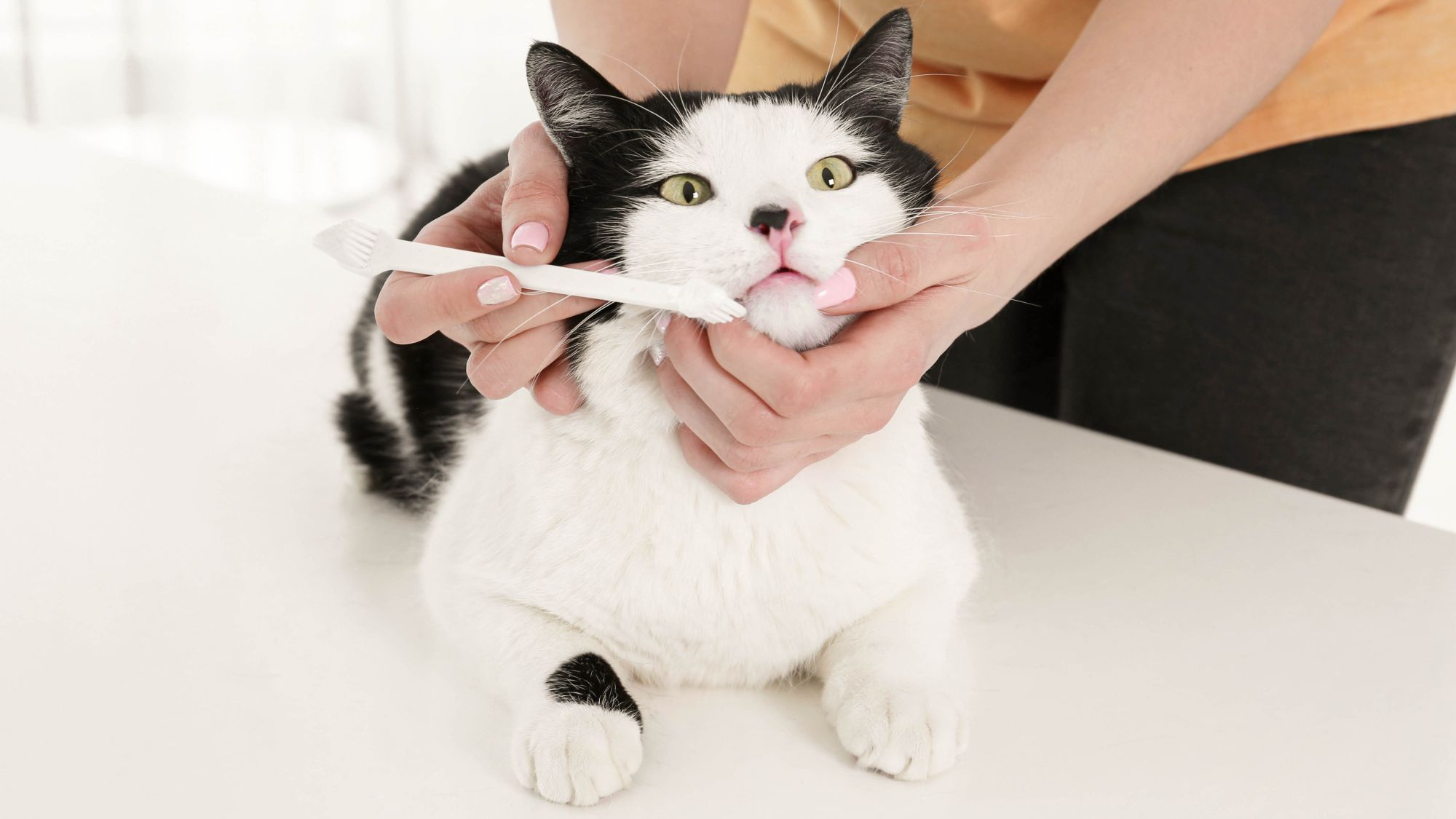
Brushing Your Cat's Teeth Guide
Learn how to brush your cat's teeth with our simple step-by-step guide.
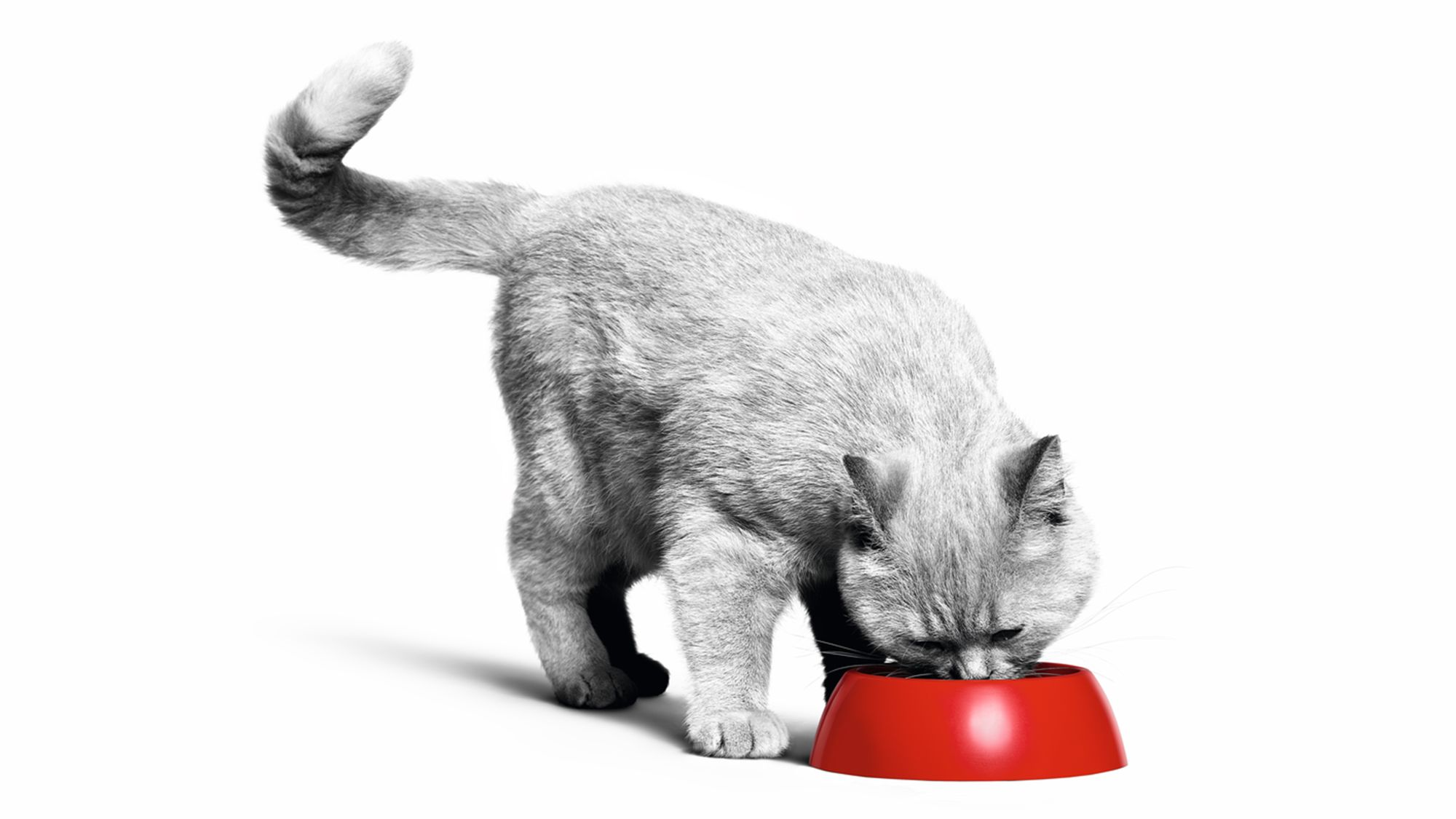
Nutritional Support - Tailored Dental Food for Cats
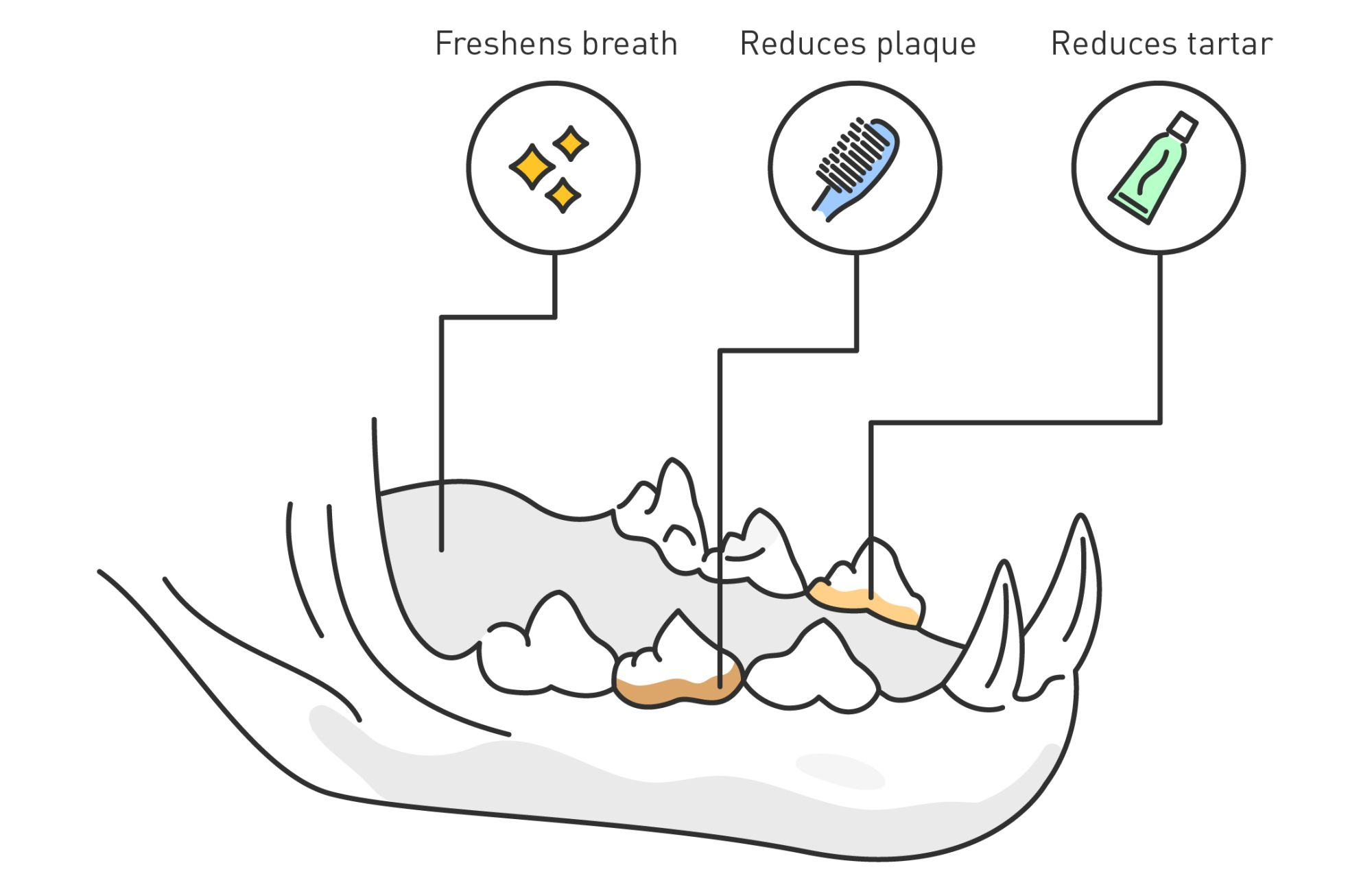
Royal Canin 'Triple Action' Effect Kibble
Featuring a 'triple action' effect, Royal Canin Dental kibble helps protect against the accumulation of plaque, tartar, gingivitis and halitosis.
- A mechanical scrubbing action - Dental kibble has been created to withstand deeper tooth penetration to create a scrubbing action - similar to that of a toothbrush.
- Contains tartar reducing nutrients - Includes a kibble coating formulated to bind to calcium in their saliva to help reduce the formation of tartar.
- Contains plaque reducing nutrients - Antibacterial and anti-adhesive properties help prevent plaque forming on teeth.
Support your Cat with Tailored Royal Canin Dental Diets
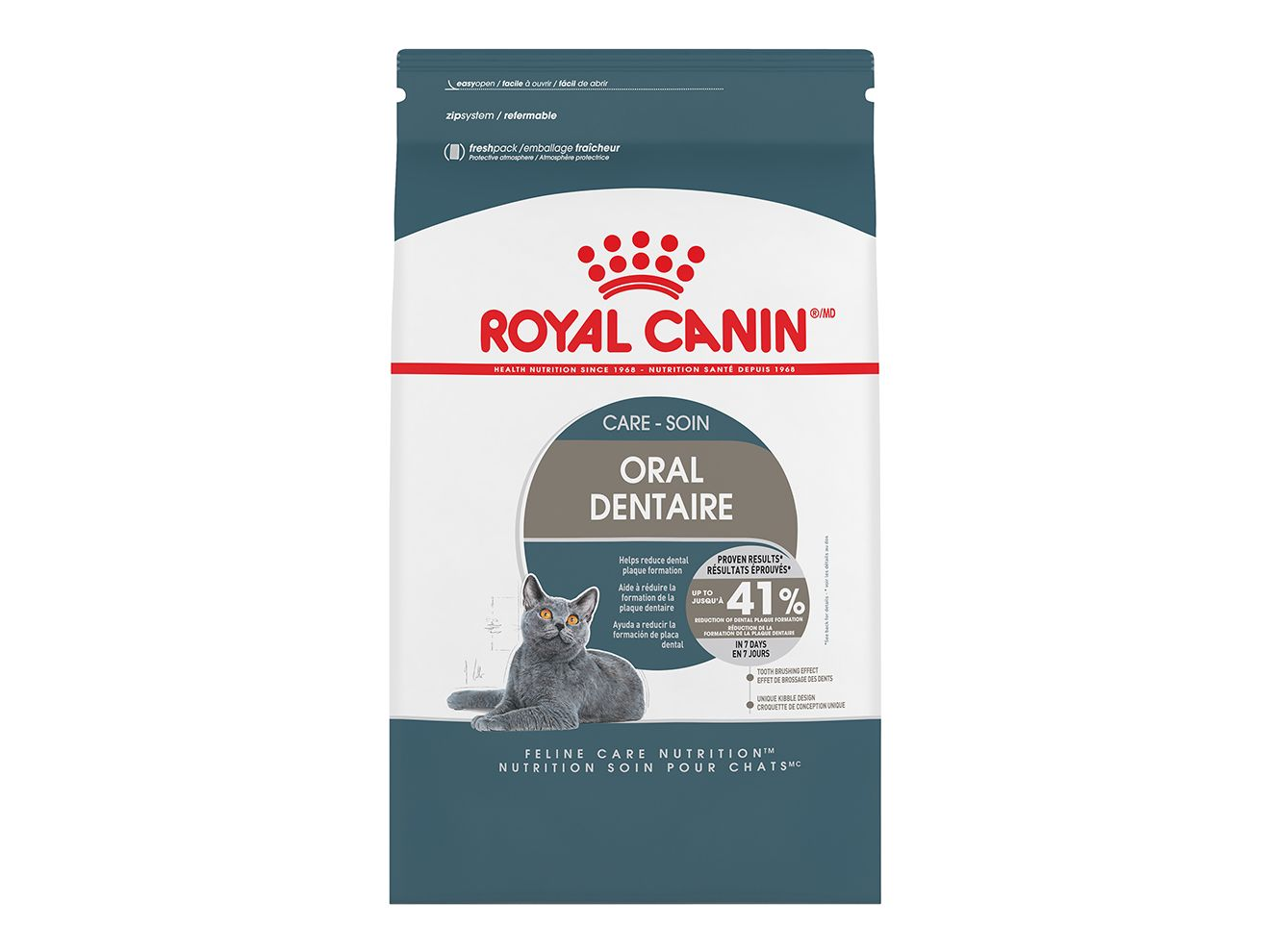
Feline Oral Care Diet
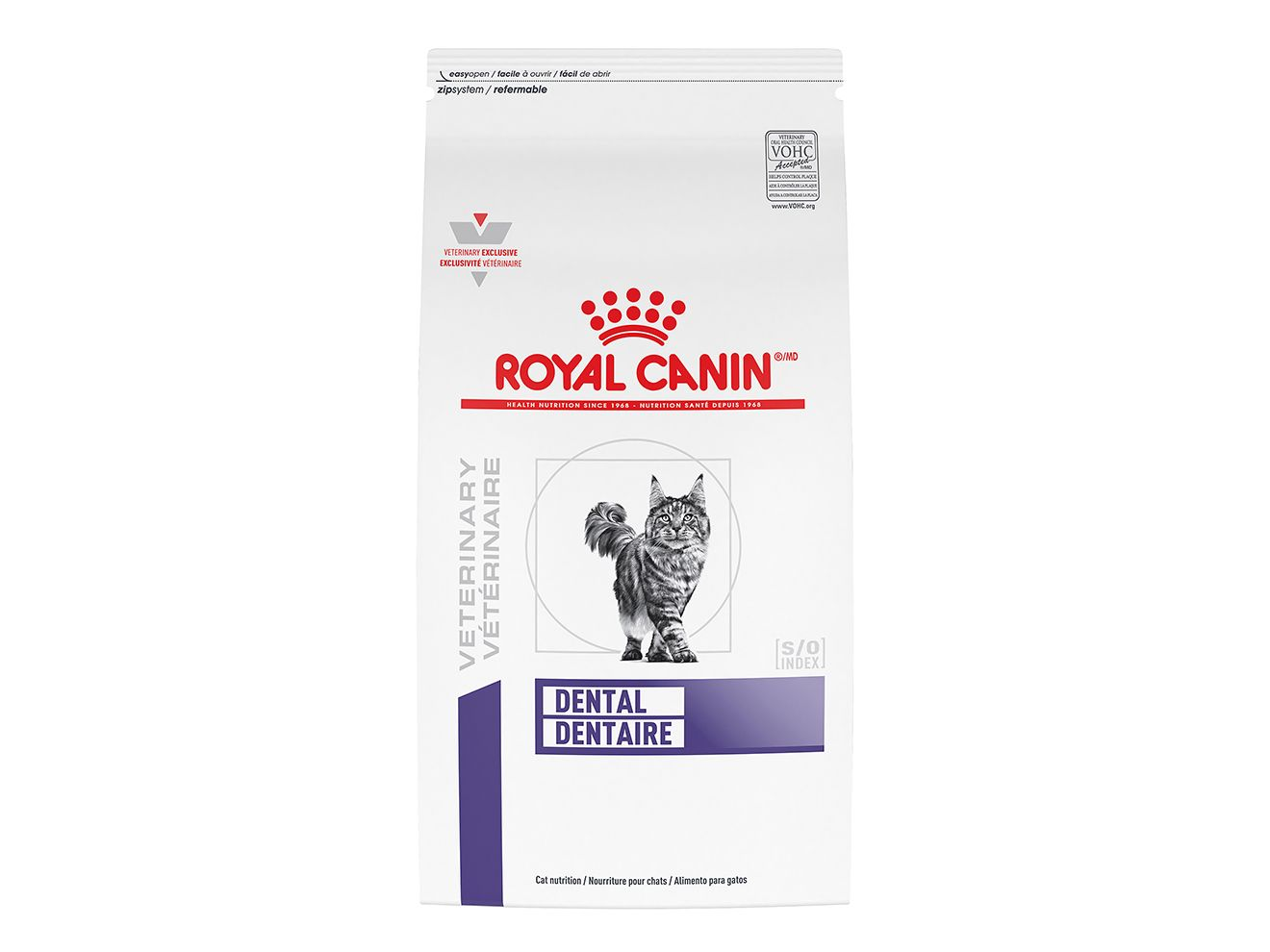
Feline Dental Diet
References:
1 IPSOS Reid Market Research Study 2013 “Periodontal Disease Hurts"
2 Internal Study